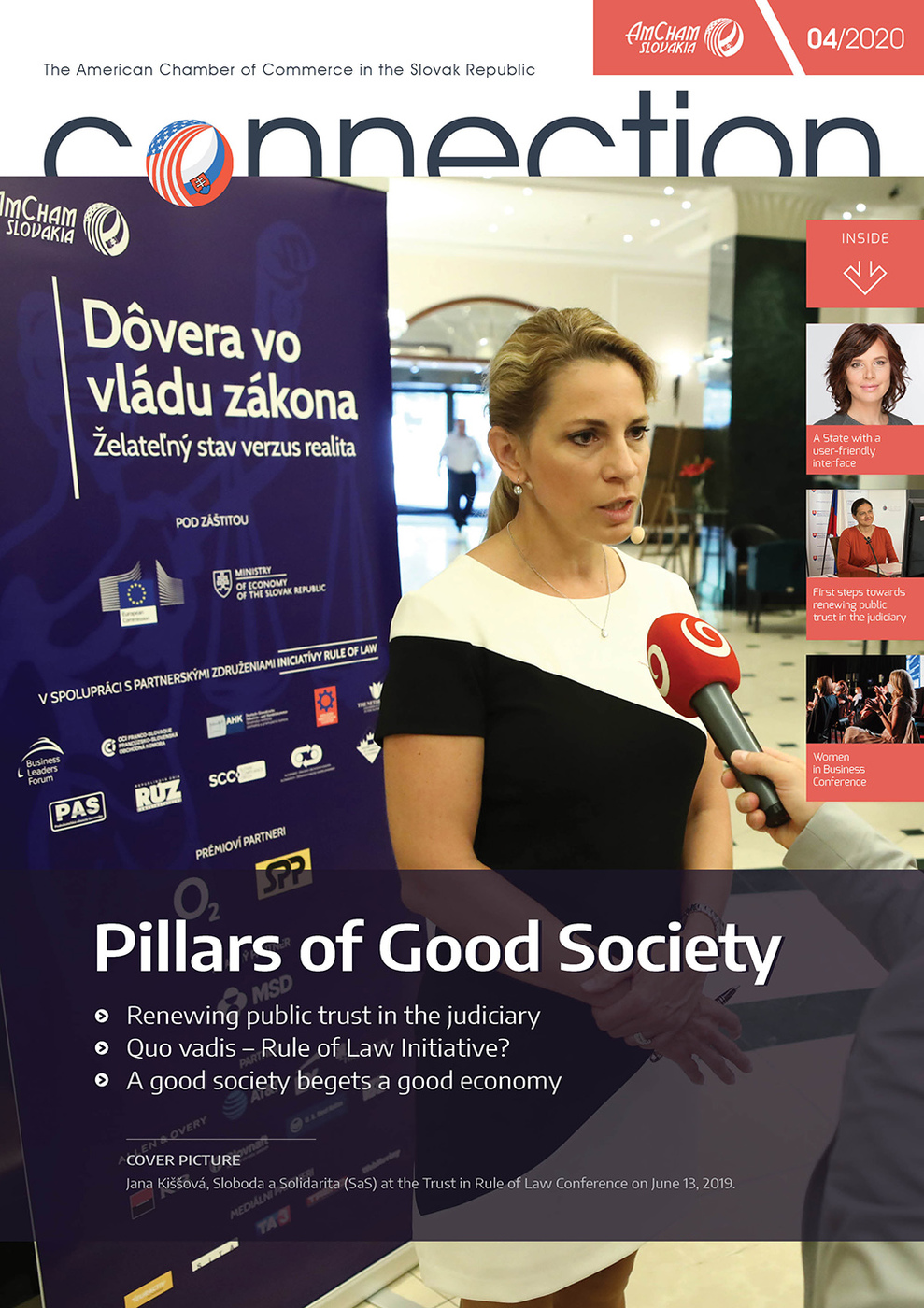A series of “How are you, Slovakia” surveys we have conducted in cooperation with the Slovak Academy of Sciences and the MNForce agency has shown that doctors and experts enjoy a high level of trust among people in difficult times. Even though making our lives uncomfortable, we considered the counter-epidemic measures necessary and appropriate, at least at the onset of the pandemic. It may thus seem that at least some of our hopes for exiting the crisis of trust have become reality.
However, the initial enthusiasm did not last forever. Not only the latest surveys, but also a brief glance at our social newsfeeds show an enormous confusion and mistrust that the COVID-19 crisis has raised or strengthened in society. People not only doubt the origin or even the very existence of the virus, the need for measures or prospective vaccination, but they question even the authorities and institutions themselves. This mistrust is a result of information chaos. Let’s look at what the COVID-19 pandemic may teach brands about strategic communication.
No magic pill against chaos, but we’re not hopeless
Essentially all unpredictable situations encourage conspiracy thoughts. The thing is that conspiracy theories come with very simple explanations in times of uncertainty. They are an anchor in the quicksand of everyday reality. Even though they will just drown us in yet more nonsense.
Many may tap their forehead when listening to the conspiracy theories surrounding COVID-19. However, the 5G antennas set on fire are a warning that even obvious nonsense can raise fear and provoke irrational reactions in people. Especially if their doubts are fuelled by the anti-system and disinformation scene armed with social platform algorithms.
People won’t change. But companies as well as public institutions enjoy quite a substantial media presence. They have the power to communicate reasonably in order to fight fallacies, while leveraging the potential of trust the people have in them. If the competent institutions vacate the information space, people will simply go for information and misinformation that others are gladly willing to serve up.
Although we wish to think the opposite, human mind is not rational and that needs to be taken into account.
So what can the governments and companies do about this situation?
Strategic communication is the groundwork. It comprises systematic communication activities aimed at making people understand and have confidence in their values, policies, and changes, as well as in the measures taken in such emergency situations as the coronacrisis.
Strategic communication is not only about words, but also about actions. Everything that an institution lives up to and everything it does is part of its strategic communication.
Strategic communication is proactive. It means it is up to you to put forward the topics and set how they are to be communicated, making sure you aren’t just trailing after others’ actions and stories.
Besides the governments, companies can also serve as positive role-models and clearly communicate common values. In Slovakia, too, we have seen a number of private sector initiatives since the outbreak of the pandemic, aimed at mitigating the impacts of the coronacrisis. To pick up just one example, the “Who Will Help Slovakia” (Kto pomôže Slovensku) initiative collected more than 1.3 million euros and redistributed them in the form of material aid.
Reputational surveys hint that this crisis will be crucial for companies. Researchers at RepTrak Company have been measuring the reputation of companies around the world for two decades. In one of their COVID-19 related webinars, they presented a finding that people had forgotten what the companies were like before the crisis. It will be important for their reputation how people remember them from times of crisis.
New buzzwords have started to echo – shared responsibility and shared sacrifice
The first one means that people are interested in how the companies and their leaders behaved during the coronacrisis, and whether they only thought about themselves and their profits or whether they thought about others’ well-being too. However, according to the latest Edelman Trust Barometer, only 38% of respondents think that the companies did the latter.
The second buzzword means that everyone, including chief executives, must “tighten their belts” during the crisis. Running expensive ads to thank their courageous employees, who are working through the pandemic on minimum wage, surely isn’t the right way to go.
In the case of the companies that were actively helping their communities during the coronacrisis, RepTrak measured a higher reputation and stronger preferences among people to buy their products or work for them. On the other hand, those companies that exploited the crisis to boost their profits have fallen into a reputational risk. Customers often actively discourage others in their surroundings from buying their products.
Restart needed
Company leaders must change their mindset. The traditionally important reputational factor – a company’s financial performance – has turned out to be the least important for consumers during the coronacrisis. On the other hand, the quality of working environment, corporate social responsibility, and ethical governance has gained more weight. Business leaders need to become more visible, look after their employees and help the governments and non-profits in finding solutions to crises.
Thus, helping in times of crisis is not only a matter of being humane, but also of rational decision-making. Companies are under increasingly tighter scrutiny of their customers and bad behavior is beyond forgivable.
There is also a lot of talk about “the new normal”. Where companies are concerned, it seems they will have to re-define how they benefit society. They are not here only to make money, they are also expected to prove their purpose and responsibility, going hand in hand with their strategic communication.
Michaela Benedigová, Managing Director & Partner, Seesame
Peter Jančárik, Head of Social Impact Team & Partner, Seesame




Follow us